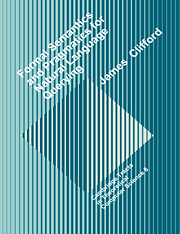3 - The HRDM Model
Published online by Cambridge University Press: 06 October 2009
Summary
Motivation for Historical Databases
The relational database model proposed by Codd [Cod70] views a database as a collection of “time-varying relations of assorted degrees” [Cha78]. However the model itself incorporates neither the concept of time nor any theory of temporal semantics. Our research suggests that the concept of time can be of interest in real-world databases, and presents a technique for incorporating a semantics of time into a database model. The relational model is used as the formal database framework within which the work is cast, but it is not an essential ingredient in the work discussed. Indeed in [CC88a] we address the issue of modelling the temporal dimension of data within the context of an object-oriented database model.
A great deal of attention has been given lately to the role that formal logic can play in providing a formal mathematical theory to unify the theory and semantics of database concepts and operations ([GM78] is an excellent reference for these issues.) We believe that this is a healthy trend that can only serve to clarify and make precise otherwise vague ideas and theories. Moreover, a great deal of the meta-theory of formal logic can be applied directly toward the understanding and the proof of many notions in database theory. In this work we propose the concept of a historical database as a tool for modelling the changing states of information about some part of the real world.
- Type
- Chapter
- Information
- Publisher: Cambridge University PressPrint publication year: 1990



